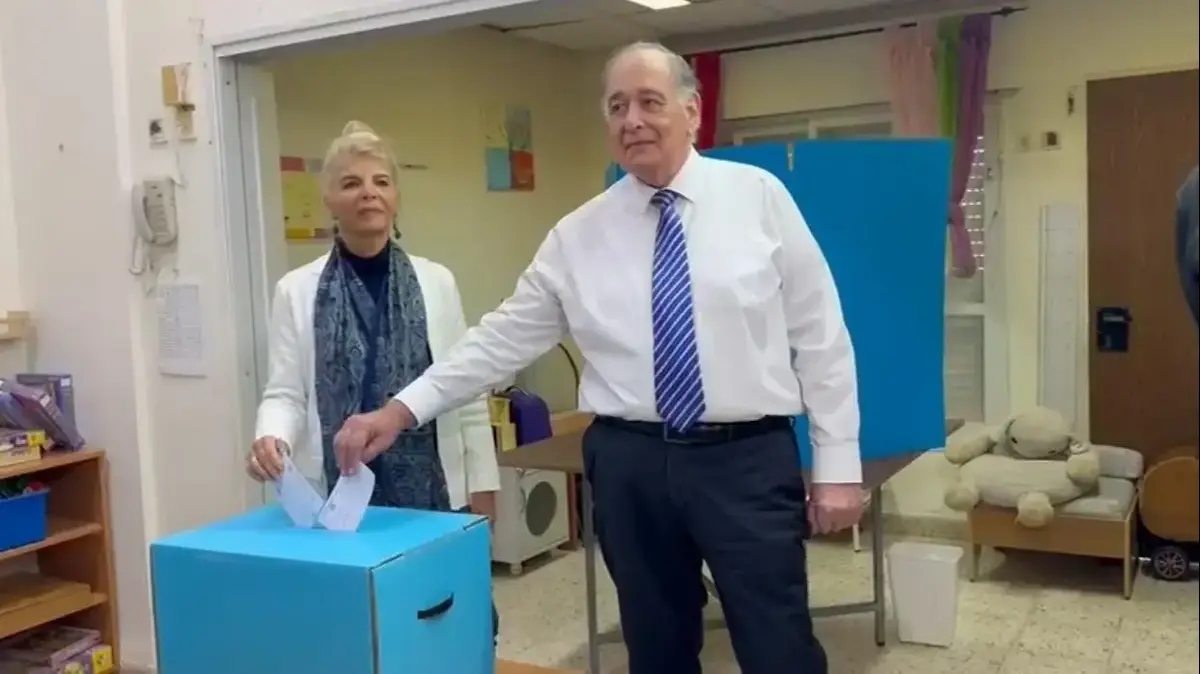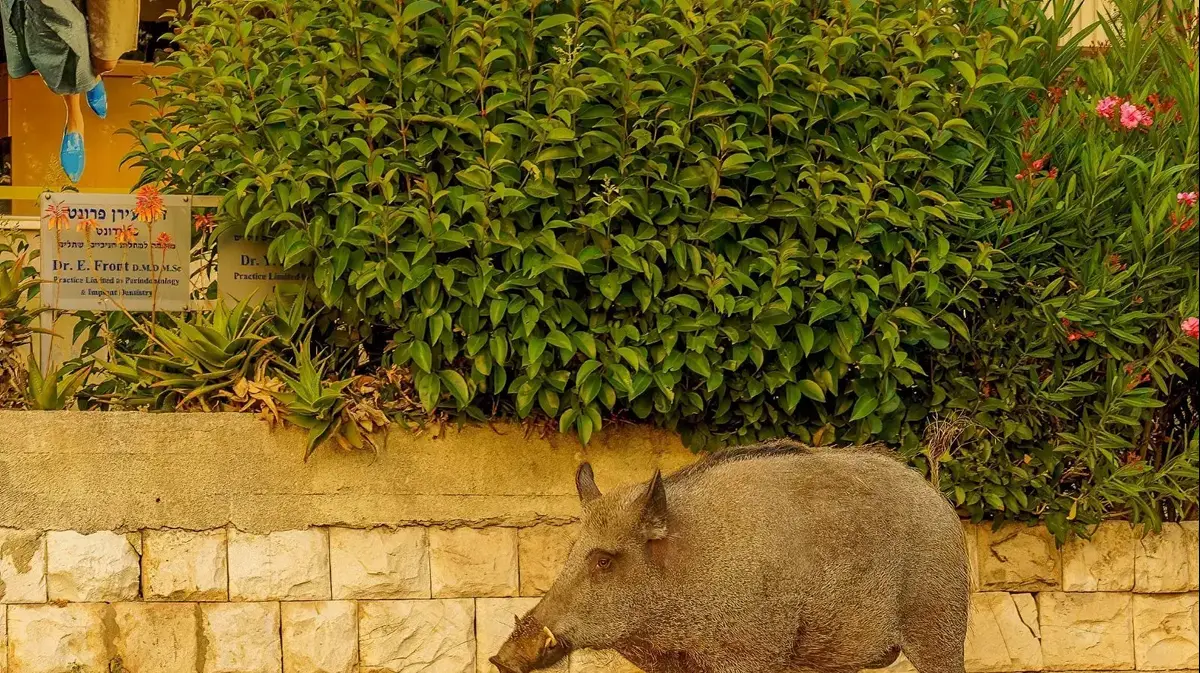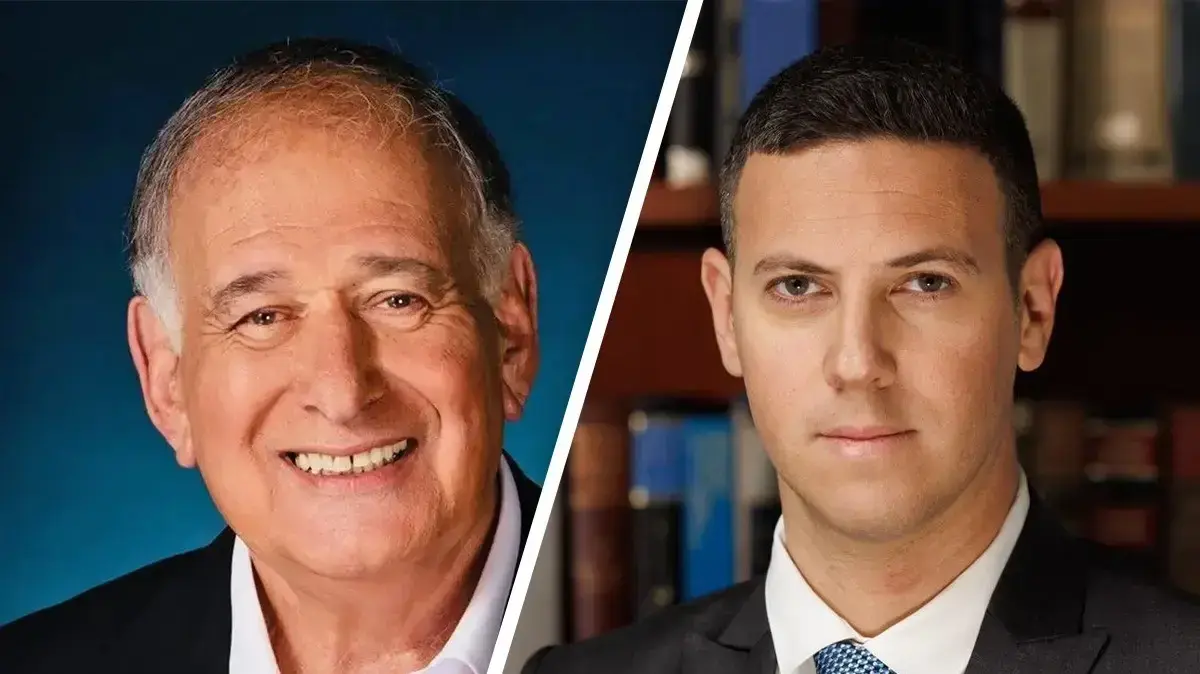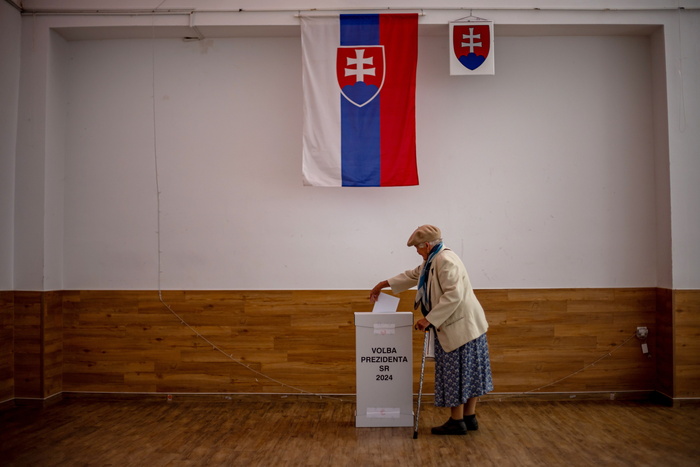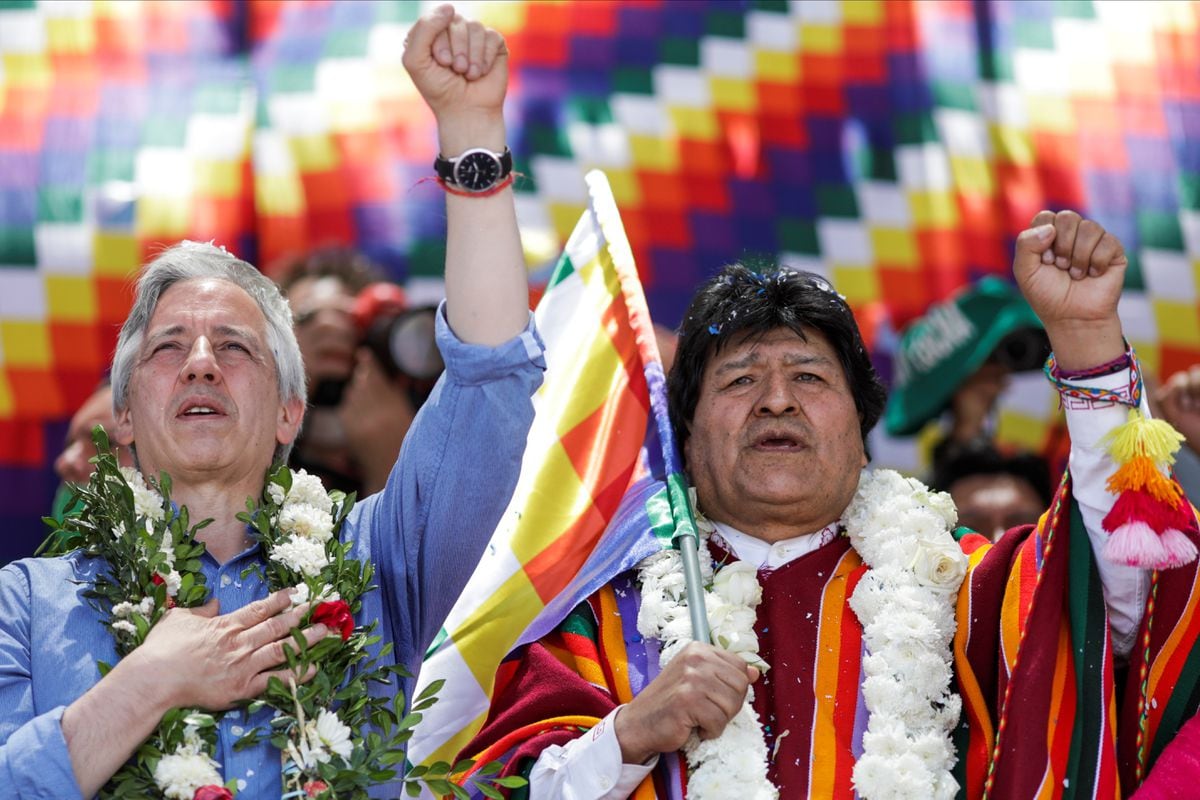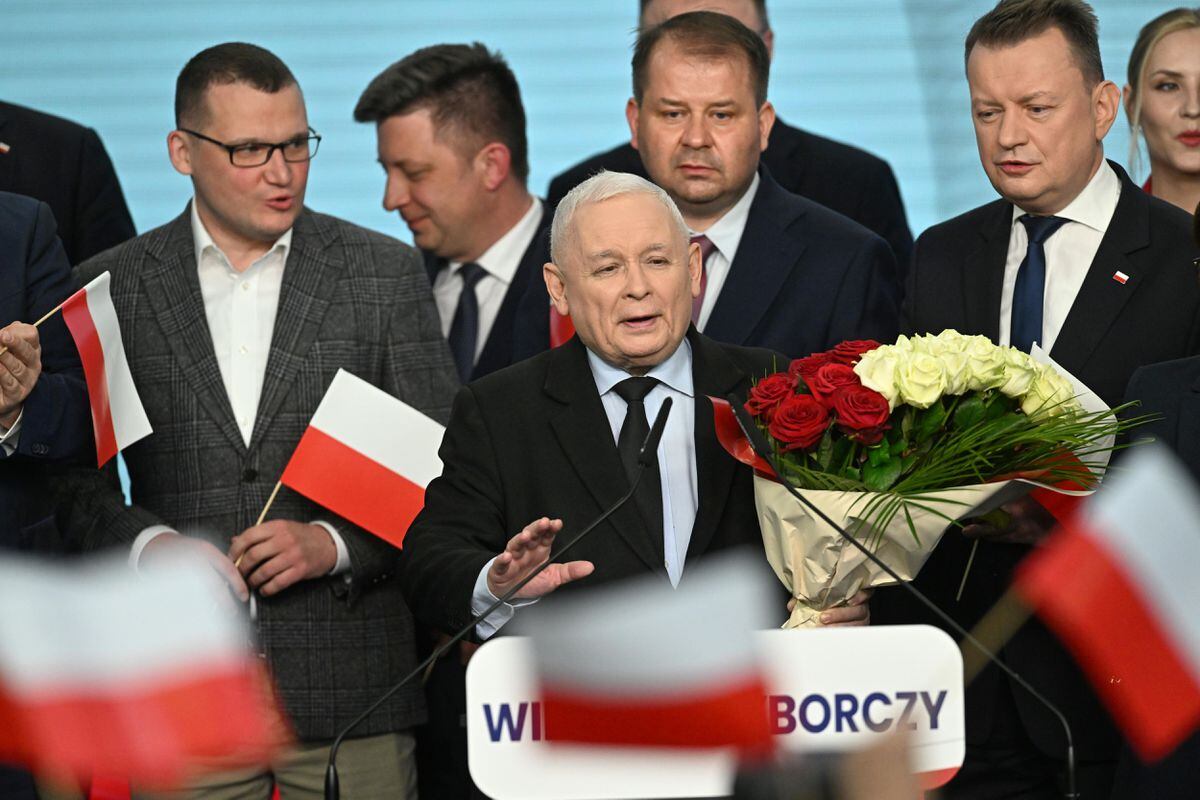A woman wears a mining helmet during a march in support of Luis Arce, a candidate of the Movement for Socialism, on September 19. Juan Karita / AP
A poll released on Wednesday in Bolivia, with just over two weeks to go before the elections, draws as the most likely scenario the holding of a second round among the candidate who leads the intention to vote, Luis Arce, of the Movement for Socialism ( MAS), the party of former president Evo Morales, and former president Carlos Mesa.
The survey was conducted after the resignation of the current interim president of the country, Jeanine Áñez, and was broadcast by Unitel, the main Bolivian television.
The opinion study attributes 41.2% of the intention to vote to Arce and 33.5% to Mesa.
According to Bolivian law, a candidate can win in the first round if he meets two conditions: obtaining more than 40% and surpassing his closest opponent with more than 10 percentage points.
Arce met both criteria two weeks ago, that is, before Áñez decided to withdraw due to his poor position in the polls and with the intention of blocking the MAS victory in the first round.
Although the votes that the president had have been distributed between the second and third in competition, the far-right Luis Fernando Camacho, what was received by Mesa has been enough for him, approaching Arce, to provoke the second round.
It is assumed that in a competition between two candidates, the one who expresses the rejection of the MAS will be more likely.
Evo Morales' party is emerging from a serious crisis caused by the overthrow of the president in November last year and has had difficulties to further expand its support, which comes mainly from the popular sectors.
For this reason, its strategy consists of seeking a victory in the first round, relying on the division of the political forces that were formed in the opposition after the 14-year Morales government.
Camacho has a national vote intention of 17.7% and is clearly in the first position in Santa Cruz, the richest and least indigenous region of the country.
He has said that he will not follow in Áñez's footsteps and that he will not resign in favor of Mesa, because this is "the old policy" and he was a "pactista" with Morales. At the same time, he considers himself the only one capable of investigating and punishing "crimes "From the previous period. However, a third of Camacho's voters could migrate to Mesa if the possibility of the MAS taking over the government in the first round becomes more acute. The electoral result will depend on the unpredictable combination of the performances of Mesa and Camacho, each of them taking away opportunities from the other, and the ability of the MAS to optimize the voting intention that it already has, the undecided rate is still high: 21.7%.
People have begun to speak of the “end of the heart attack”, which entails serious risks for the country because only 31% of the population fully trusts the Electoral Tribunal, despite the fact that it was completely renewed after the annulment of the last elections for an alleged fraud.
In those elections, the objective of the two sides of the Bolivian political polarization was also the same: to frustrate the victory of the MAS and make possible a second electoral round.
In the end, the official result ruled her out by such a narrow margin that it encouraged accusations of fraud against Morales, who was then seeking reelection for the third time.
Luis Fernando Camacho led the protests of the urban middle classes against this alleged fraud and to force the resignation of Morales.
This candidate seeks a radical change in the legacy of the indigenous president, while Mesa is more moderate.
However, both aim to leave behind the statist economic model, the shared power between the Government and social organizations (unions and peasant communities) and the indigenous “Plurinational State” enshrined in the 2009 Constitution.
Several lawsuits have been filed with different arguments for the Electoral Tribunal to prevent the MAS from participating in these elections.
The main ones are based on the accusation of candidate Luis Arce for allegedly having published internal polls of his political organization, a fault that the electoral law sanctions with the disqualification of the party that commits it.
The electoral institution has referred these demands to the Constitutional Court, which warned that it will not be able to rule on them before October 18.
For days, groups of activists have been holding protests at the door of electoral offices in various regions to demand that the authorities prevent the participation of the MAS, which they consider an "affront to democracy."

/cloudfront-eu-central-1.images.arcpublishing.com/prisa/HVBV34IFW5AR7PHUSK4UK6TMBQ.jpg)
